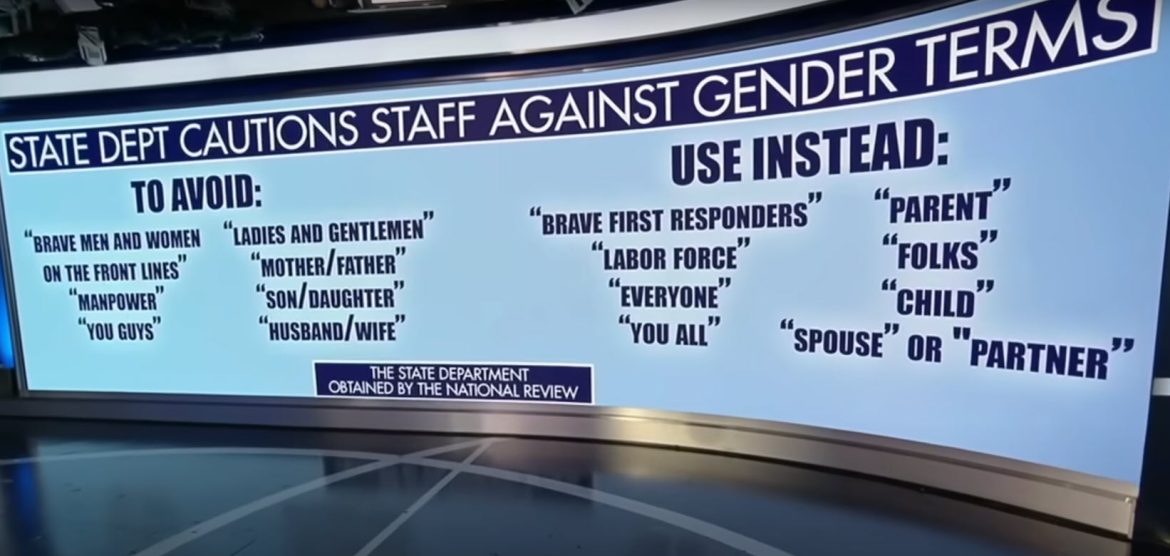The State Department is standing by a recent memo instructing its employees to adopt gender-neutral language, sparking a broader discussion on inclusive communication practices.
The memo, issued by the State Department, encourages staffers to incorporate gender-neutral terms in their official communications. The move aligns with broader efforts to promote inclusivity and acknowledges diverse gender identities.
State Department spokesperson, Emily Thompson, addressed the memo during a press briefing, stating that the guidance aims to foster an inclusive and respectful environment for all employees. Thompson emphasized the department’s commitment to reflecting evolving societal norms in its language usage.
The memo outlines recommendations such as using terms like “parent” instead of “mother” or “father” and opting for gender-neutral titles like “partner” rather than “husband” or “wife.” While the State Department maintains that the memo is a step toward modernizing communication practices, it has faced both support and opposition.
Advocates applaud the initiative for recognizing and accommodating the diversity of gender identities, fostering a workplace that respects and values all individuals. Critics, however, argue that the memo could be perceived as an imposition on personal expression and traditional language norms.
The debate echoes wider conversations around gender inclusivity and language use in various sectors, with organizations increasingly adopting policies that reflect changing societal norms. The State Department’s memo adds to a growing trend of institutions reassessing and adjusting their communication practices to align with evolving social expectations.
As discussions surrounding gender-neutral language continue, it remains to be seen how this memo will impact the broader discourse on inclusivity within government agencies and beyond.



